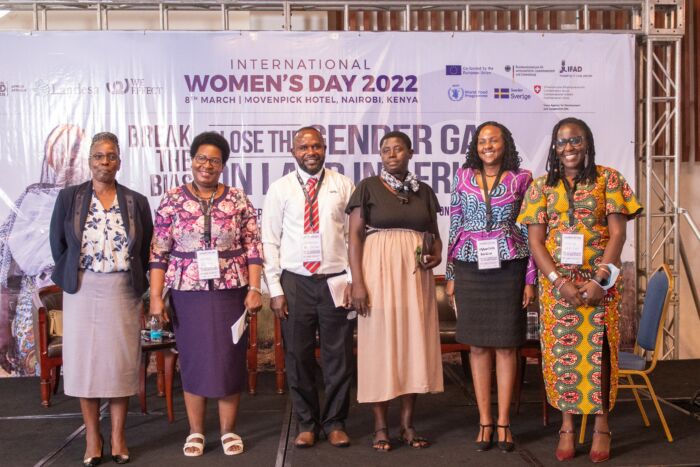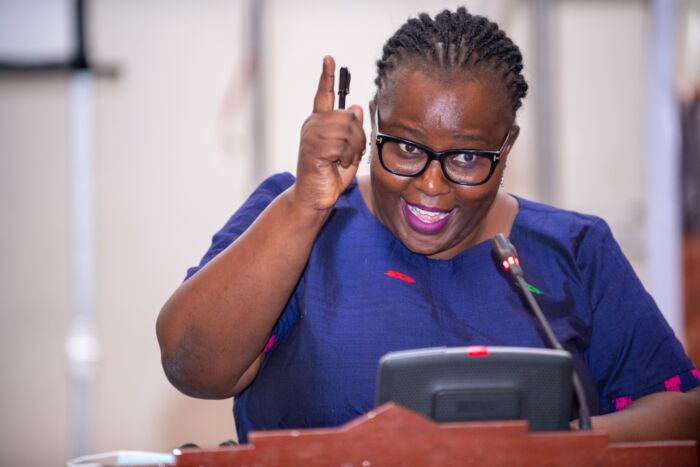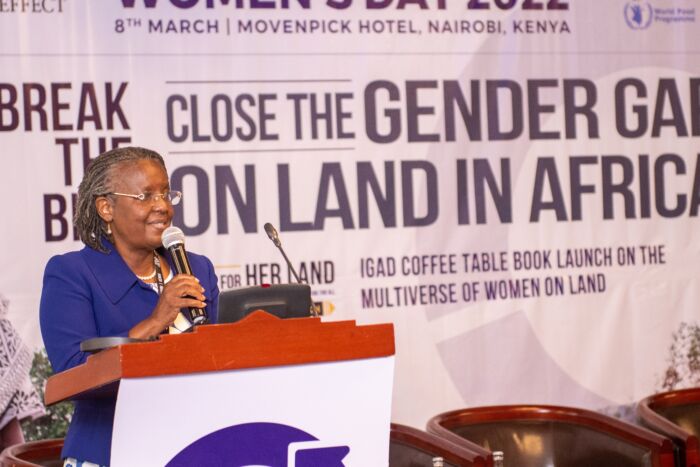Break the Bias: Close the Gender Gap on Land in Africa
Date
May 20, 2022
(Left) Regina Bafaki, Executive Director at Action for Development (ACFODE) Uganda, Faith Mutuku, Programme Officer – Gender Equality, We Effect, and Monica Emiru, Executive Director, National Association of Women Organisations in Uganda during the Stand for Her Land Africa Chapter Launch.
The theme of International Women’s Day 2022 is “Break the Bias,” calling on all people to act individually and collectively to eliminate attitudes and barriers that perpetuate gender inequality and continue to oppress women and girls.
To commemorate the International Women’s Day (IWD), We Effect East Africa, in partnership with IGAD, International Land Coalition, and Landesa, launched the Stand For Her Land (S4HL) regional campaign.

The campaign invests in grassroots women’s leadership to catalyze the movement for women’s land rights and aims to close the gap between global commitments and local practice, to build a future where all women and men have a secure place to call home.
Women’s land rights are directly connected to the cross-cutting concerns of our time: climate change, COVID-19 recovery, food security, and sustainable development.

Lack of land ownership means women remain in patriarchal systems that reinforce gender inequalities and restrict their progress. Through collective action and advocacy, Stand for Her Land is bridging the gap between government commitments and the reality on the ground.
We Effect is calling on governments and development partners to prioritize efforts to close the implementation gap -the divide between strong legal standards and the realization of those rights for women on the ground.
When a woman holds secure rights to her land, power dynamics shift. Her dignity, household decision -making and economic freedom increase.
Speaking during the event Esther Mathenge, commissioner at National Lands Commission said, “Countries that place women and their land rights at the center of COVID-19 recovery efforts will emerge stronger and more resilient to future crises.”

The launch event was accompanied by a day-long summit on women’s land rights attended by over 300 participants, including delegates from international and national governing bodies, civil society organizations, grassroots women’s leaders, development partners, media, and academia.
Strong land rights help women to not only improve their own lives but those of their families and communities. When women have secure rights to land, spending on children’s education and household nutrition goes up. Women’s land rights are key to addressing the deeply gendered issues of climate change, food security, and global health.
It is estimated that closing the gender gap in land ownership could increase yields on women-owned farms by 20 to 30 percent, which could reduce the number of hungry people by 100 to 150 million, according to the Food and Agriculture Organization.